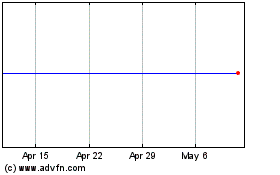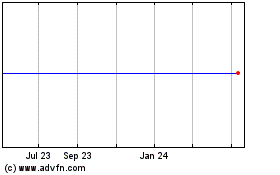A federal judge in Louisiana on Tuesday ruled against the Obama
administration's temporary ban on deepwater offshore drilling,
dealing a blow to the administration's response to a Gulf of Mexico
oil spill that continues to grow.
Judge Martin Feldman of the U.S. District Court for the Eastern
District of Louisiana ordered the U.S. Department of Interior to
"immediately" stop enforcing the moratorium until a full trial on
its merits occurs.
The administration's decision "simply cannot justify the
immeasurable effect on the plaintiffs, the local economy, the Gulf
region and the critical present-day aspect of the availability of
domestic energy in this country," the judge said.
The White House responded by saying it would immediately appeal
the injunction. The Justice Department could, as early as Tuesday,
request the judge stay the injunction, pending appeals.
"Continuing drilling at these depths without knowing what
happened does not make sense," said White House spokesman Robert
Gibbs. He said the safety issues are too profound and uncertain to
let slide.
In his ruling, Feldman said the moratorium "does not seem to be
fact-specific" and didn't account for the safety records of the
many companies that operate in the Gulf.
"Are all airplanes a danger because one was?" the judge wrote.
"All oil tankers like Exxon Valdez? All trains? All mines? That
sort of thinking seems heavy-handed, and rather overbearing."
The judge's decision, which was applauded by the energy
industry, underscores a growing rift between the administration and
local authorities in the Gulf Coast, where the energy industry
plays a significant role in the economy.
The ruling comes in response to a lawsuit filed in early June by
Hornbeck Offshore LLC, a small oil-services company based in
Covington, La., that said it would be crippled because of the
six-month ban, decreed on May 28 by the Interior Department after
the spill at a BP PLC (BP)-operated well. Hornbeck Offshore was
soon joined by other small oil field-service companies and got
support from the state of Louisiana. On Friday, drilling contractor
Diamond Offshore Inc. (DO) filed a similar lawsuit in Houston.
Judge Feldman in past years has been an active investor in the
energy sector through an extensive investment portfolio that
included stock holdings in several oil and gas companies, many
based in Houston.
Feldman's most recent financial disclosure form for 2009 was not
immediately available. But in 2008 financial disclosures the judge
indicated that he held shares in Transocean Ltd. (RIG), the
operator of the Deepwater Horizon oil rig at the center of the
current gulf disaster. Feldman's chambers did not respond to a
request for a copy of the 2009 disclosure form or for comment on
his participation in the case.
Federal judges are required to step aside from cases that
present financial conflicts. They are also required to fill out
annual disclosure forms that are distributed to the public by the
Administrative Office of the U.S. Courts following a written
request.
Despite the decision, it is unlikely that many companies will
jump to restart drilling immediately, given the complex legal
maneuvering likely to come.
But the wait could be brief, said Carl Tobias, a law professor
at the University of Richmond. The case's next destination, the
U.S. Fifth Circuit Court of Appeals in New Orleans, is likely to
put the case on a fast track. "I think it could be done in a month,
everything would be shortened up," Tobias said.
The case could make it all the way to the Supreme Court on an
expedited basis, but the highest U.S. legal authority, on the verge
of summer break, is unlikely to give it much consideration, "unless
the justices violently disagree with the Fifth Circuit," Tobias
said.
Royal Dutch Shell PLC (RDSA), a major producer in the Gulf of
Mexico, said it would "need to understand the lower court's ruling
and then await the outcome of the appeals." Shell added that
Tuesday's ruling "is an important step in returning thousands of
oil-service workers to their jobs."
Chevron (CVX) spokeswoman Margaret Cooper said the company was
"pleased" with the judge's decision because it recognizes "the
serious impact of the six-month moratorium." Cooper added it's
unclear when Chevron will be able to resume drilling in the Gulf as
the federal government has said it will appeal the decision.
Chevron is the second-largest U.S. oil company by market value
after Exxon Mobil Corp. (XOM) and one of the biggest operators in
the Gulf.
Hornbeck Offshore Services Inc. (HOS) also said it's "pleased"
the court ruled in its favor. "While the federal government has
announced its intent to appeal this decision, we at Hornbeck are
ready to continue serving the needs of our customers in a safe and
environmentally sound manner," Hornbeck said in a statement.
Lee Hunt, head of the International Association of Drilling
Contractors, said his organization is "very pleased to see someone
else is taking our view."
BP declined to comment, saying that it isn't a party to the
case.
Shares of companies with significant operations in the Gulf of
Mexico jumped immediately after the judge's ruling, but shed those
gains within minutes. Shares of Diamond Offshore ended down 2.9% at
$62.85, after jumping as high as $68.65. Shares of fellow offshore
driller Noble Corp. (NE) were down 4% at $30.09, after hitting a
high of $31.65. Hornbeck shares gave up 1.5% to close at $15.32,
after peaking at $17.24.
Analysts have estimated that oil-field service companies with
major operations in the Gulf of Mexico could lose a third or more
of their profits as the moratorium drags on, but Tuesday's ruling
doesn't necessarily rescue the industry.
"Fundamentally, nothing has really changed," said Jud Bailey, an
analyst with Jefferies & Co. The ruling represents a stunning
defeat for the Obama administration and Interior Secretary Ken
Salazar. The administration had said that a six-month "pause" in
drilling at depths greater than 500 feet was needed to allow the
U.S. government and industry time to implement new safety rules and
procedures to prevent another accident like the April 20 explosion
of the Deepwater Horizon oil rig.
But the moratorium encountered vociferous resistance from the
oil and gas industry, and many elected officials in oil-producing
Gulf states, including Louisiana Gov. Bobby Jindal. Industry groups
said the ban would cost $330 million a month in direct wages and
cause the loss of 40,000 jobs. The administration was also
embarrassed when some petroleum engineers who were consulted by
Salazar for advice on how to respond to the spill said their views
had been misrepresented in an Interior Department report that
called for a moratorium on deepwater drilling. The experts said
they had never signed off on the moratorium and echoed industry
arguments that a broad ban on deepwater drilling was an
overreaction that would unfairly punish workers and companies who
had nothing to do with the Deepwater Horizon accident.
The decision, meanwhile, irked environmental groups that had
filed briefs supporting the moratorium. "We will be joining the
administration in appealing the decision," said Sierra Club
spokeswoman Kristina Johnson. She added that the idea of opening up
more drilling right now is "outrageous."
"They haven't even stopped the flow of oil yet, so talking about
more drilling right now is like talking about finding kindling when
your house is engulfed in flames," she said.
Oil has been leaking into the Gulf of Mexico since the explosion
and sinking of the Deepwater Horizon rig in late April. As the oil
slick has grown, BP has faced withering criticism, and deepwater
drilling has come under scrutiny.
The announcement of the moratorium last month sparked big losses
for the share prices of companies involved in deepwater drilling,
particularly in the Gulf of Mexico. Since then, uncertainty has
swirled about the possibility of tighter regulations.
-By Angel Gonzalez, Isabel Ordonez and Brian Baskin, Dow Jones
Newswires; angel.gonzalez@dowjones.com
(Stephen Power, Brian Baskin and Russell Gold contributed to
this article.)
Cooper Cameron (NYSE:CAM)
Historical Stock Chart
From Jun 2024 to Jul 2024

Cooper Cameron (NYSE:CAM)
Historical Stock Chart
From Jul 2023 to Jul 2024
